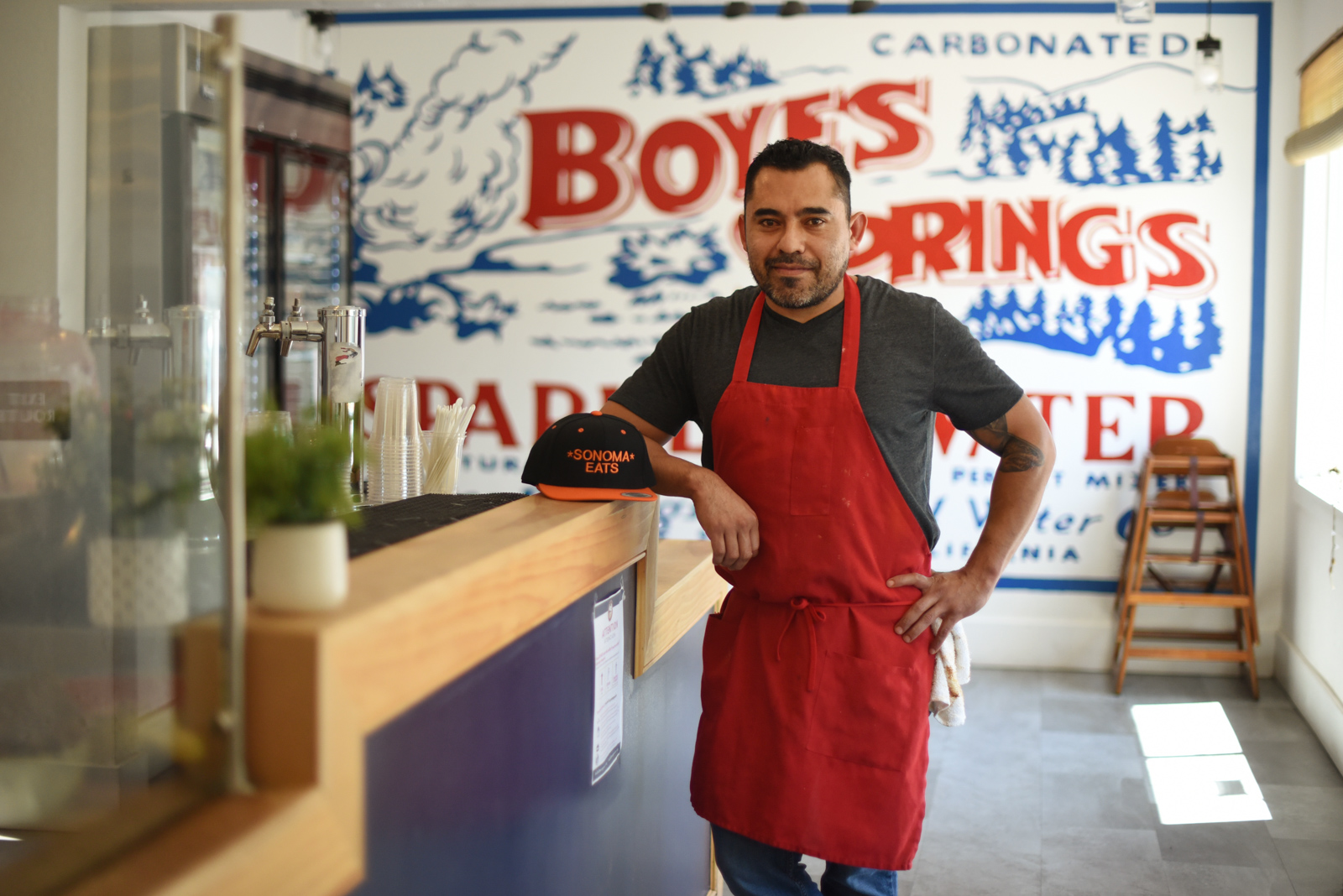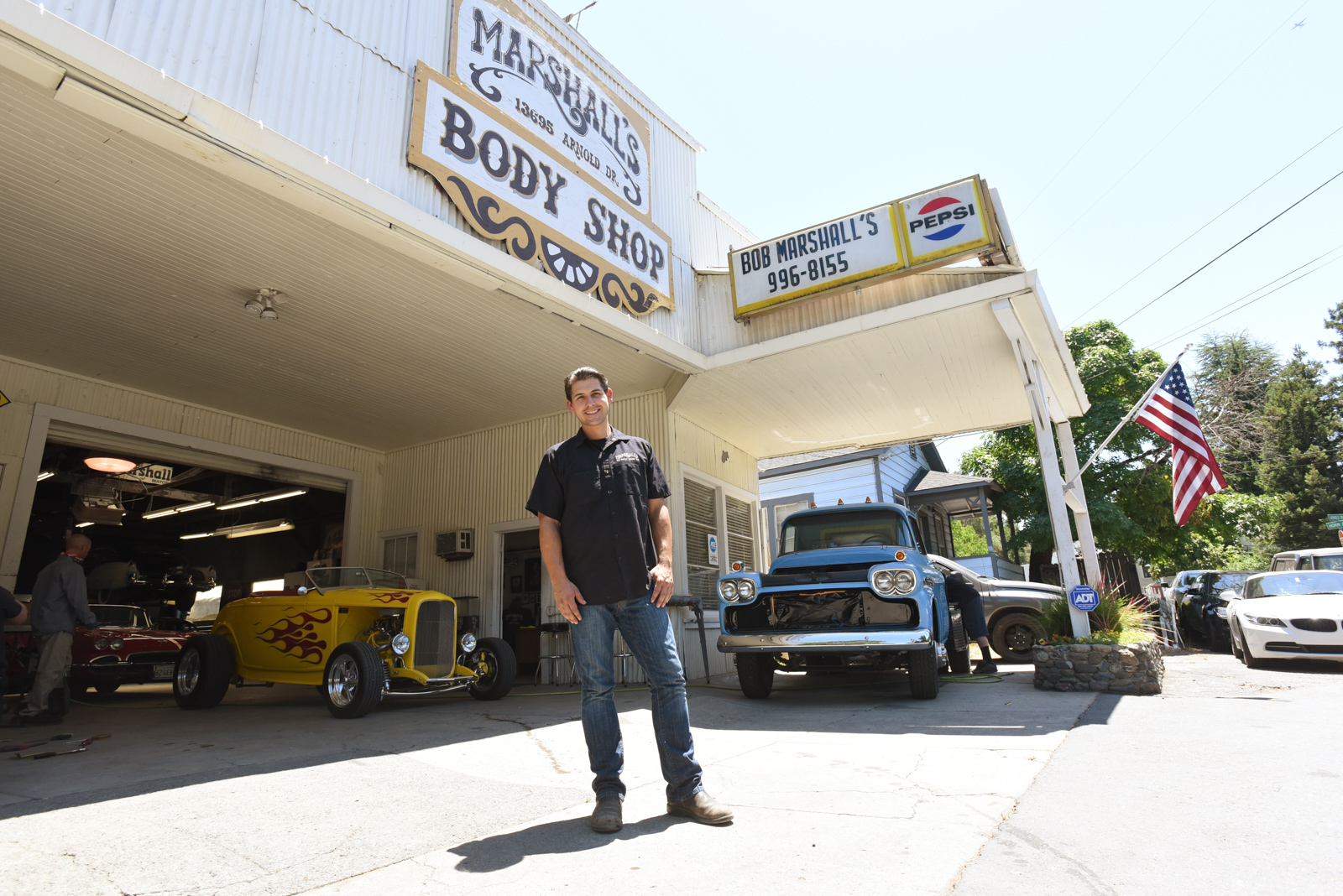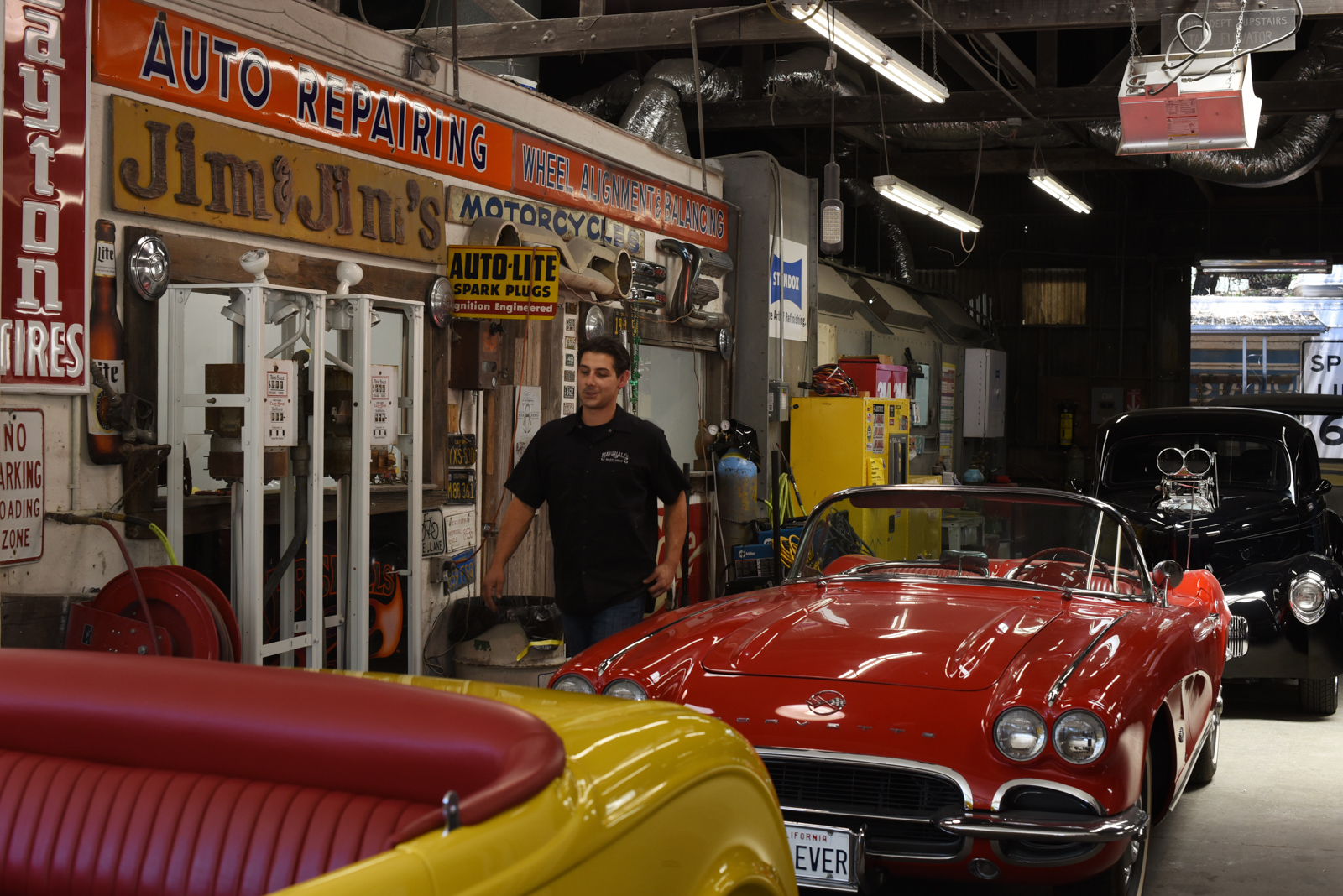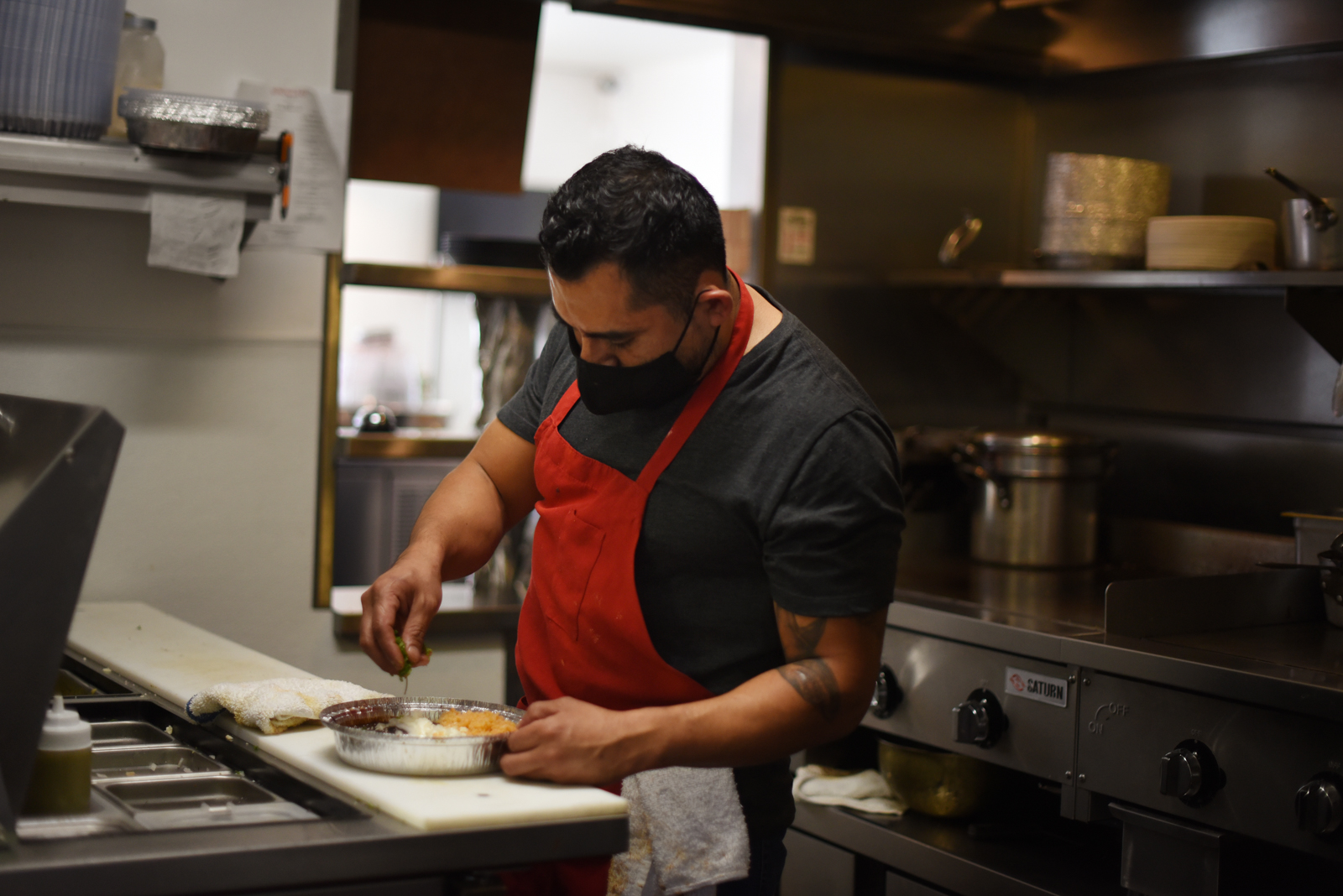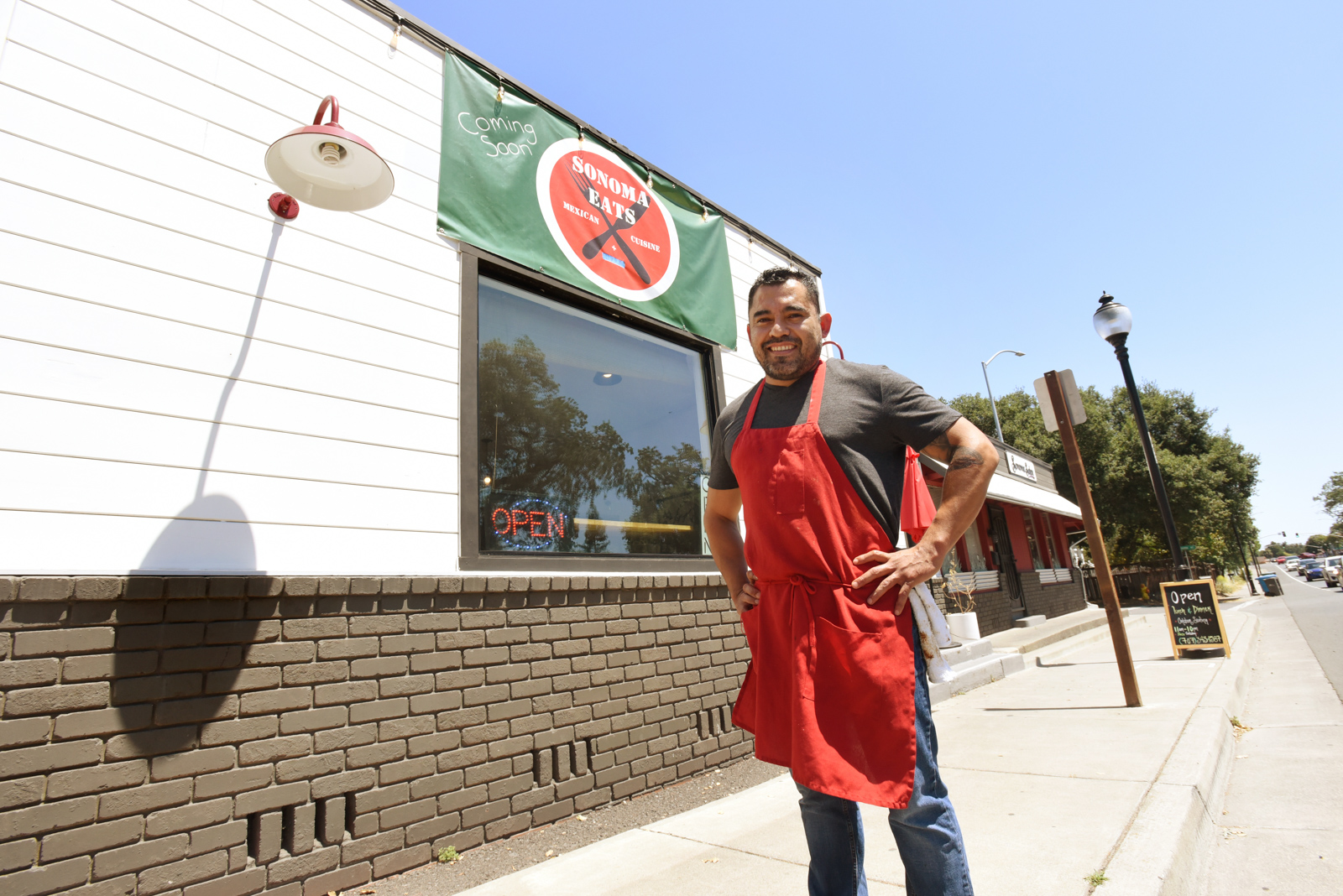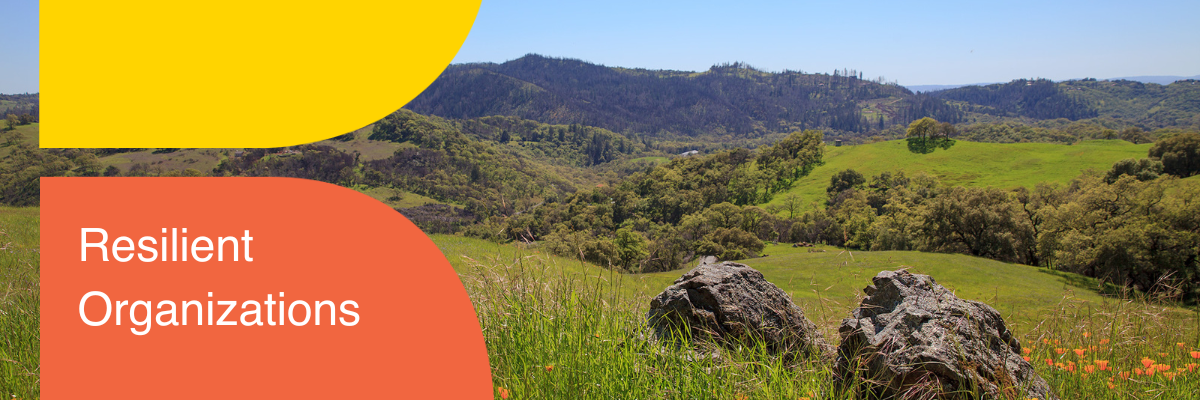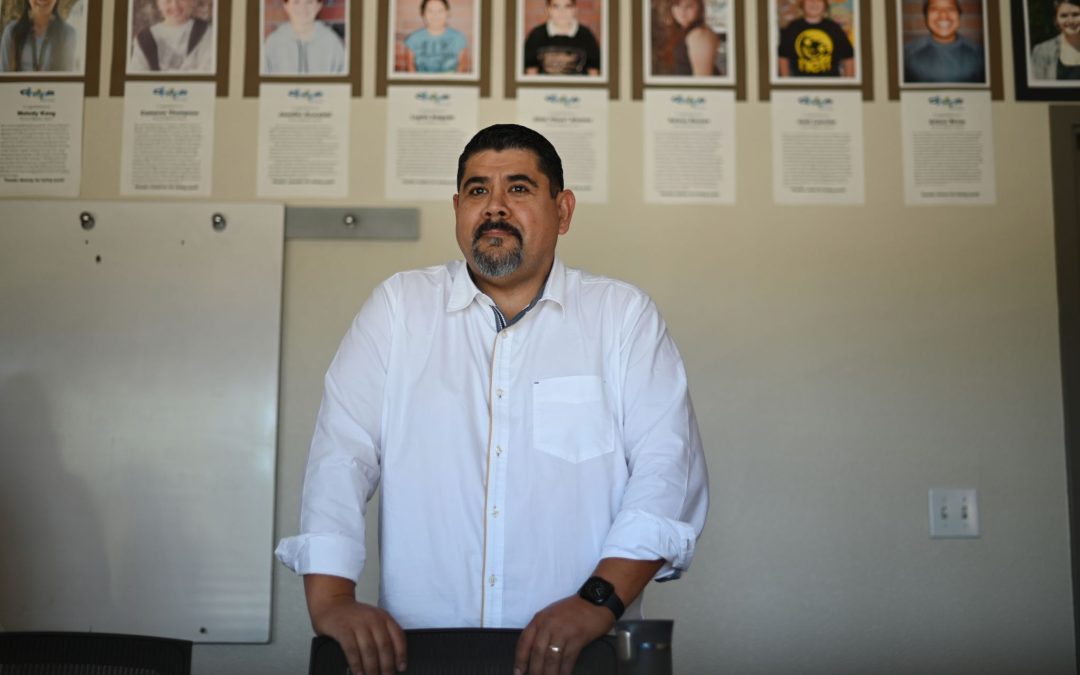When Cliff Casolla bought Marshall Auto Body in Glen Ellen nearly six years ago, he could have never predicted the bumps he’d pass over during his first years in business. Fires, black outs, evacuations, closures because of coronavirus; he maneuvered it all with small business support through the microloan program at La Luz, a program we recently funded with a grant from our COVID-19 Resilience Fund.
“It’s really helpful as a small business owner that doesn’t have a lot of experience on the business-side of things or the funds; I can go to La Luz,” says Casolla. “If you’re not looking for just the funds, they have experienced people that run businesses that can mentor, give you guidance, or help with establishing a business plan.”
Casolla sought and received a microloan from La Luz when he first purchased his shop. And, as a participant in the program, he received referrals and support from La Luz while adapting to the ever-changing social distancing guidelines.
The program started in 2015 and has approved approximately twenty-six microloans to help small businesses to either launch or survive through hardships such as the current pandemic.
“It was really established to help support the entrepreneurs beginning that first step to be able to gain capital to start their own business,” says Economic Advancement Program Manager at La Luz, Amanda Hernandez. “When the pandemic and shelter in place started, we asked ourselves: how do we support our current microloan recipients?”
Hernandez says that La Luz prioritized reaching out to make information and resources available as their loan recipients faced an uncertain future for an undetermined amount of time. They provided information about working with banks, how to defer loan payments during the pandemic, and helped connect them to potential grants to help businesses support their staffs.
Small businesses in Sonoma Valley are eligible to apply for the microloans, which range in the amounts of $1,000 to $50,000. Hernandez says that the majority of businesses who have received loans are a part of the food industry, though they have supported a variety of ventures including housecleaning services, and mobile pet grooming services.
One restauranteur that received a loan during the pandemic is Efrain Balmes who co-owns Sonoma Eats in Sonoma.
Balmes has owned food trucks in Sonoma Valley for three years and recently connected with an investor to open Sonoma Eats as a dine-in restaurant. But, just as they prepared to open the doors at their new location, shelter in place rules were announced and Balmes and his business partner had to rethink their plans. The opening day was so close that Balmes says they had their first inspection with the health department over FaceTime. Because they were already paying rent at their new location, they pushed to open on time, even with restrictions in place, offering take-out rather than dine-in service.
“It was tough and it was kind of scary because, honestly I thought it wasn’t going to work,” says Balmes. “But we had to try at least.”
Balmes says the microloan from La Luz helped get through those first months of slow business and now things are picking up for them, even with a limited seating capacity.
Like Balmes, Casolla is not sure what the future holds for his business, but both feel supported by the program.
“It’s a good resource for me to be able to reach out to and have as a young, new business owner. It’s so nice having experienced wisdom and people that are successful themselves,” says Casolla. “Just having that conversation with them about your struggles and finances; sometimes it’s hard to stomach that or it might be embarrassing, but they’re really down to earth, humble people that would walk me through it.”
La Luz works hard to ensure that the application process is accessible to those seeking support. Although loan applicants haven’t been able to sit down for one on one support as they could before the pandemic, loan applications are available online. They also make themselves available to business owners—either directly or through a partner organization—offering mentoring, connections to other funding resources, and to programs like business development classes.
“We have amazing people in the community who have such great ideas and are so passionate about being able to be their own boss or to be an entrepreneur, and sometimes that piece of not being able to fund their projects or needing additional support is something that deters a lot of people from going into business for themselves,” says Hernandez. “The funding from Community Foundation definitely helps us because we are then able to help support those people.”
Story by Dani Burlison, photos by Erik Castro

